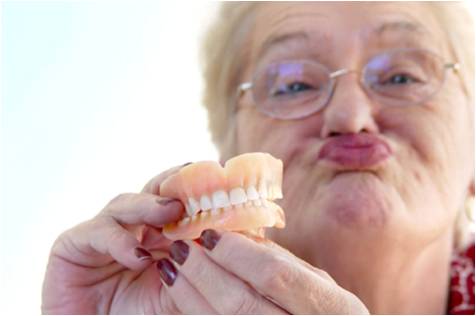
What are dentures?
When a person is missing teeth, he or she may experience a variety of problems. The person may become less confident in their smile and have difficulty speaking and eating certain foods. Dentures are appliances that are custom made to replace a person's missing teeth and restore the appearance and oral functions that were lost. The denture can be either a full denture or a partial denture. A full denture is used when all of the person's teeth are missing and a partial denture is used when only some of the teeth are missing.
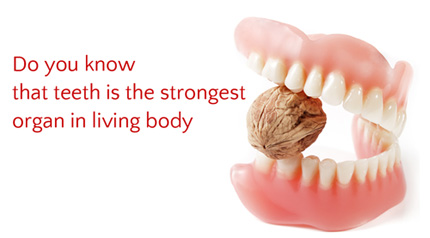
We have a specialized team of prosthodontist to care for our privileged patients, We undertake
-Complete dentures
- CONVENTIONAL
- UNBREAKABLE
- BPS DENTURES
- Removable partial dentures
- Cast partial dentures
- Implant supported dentures
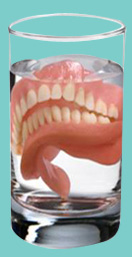 What are the different types of dentures? What are the different types of dentures?
Complete Dentures: Complete dentures are made of a plastic base that is colored in order to replicate gum tissue and supports a full set of plastic or porcelain teeth. The traditional full denture is held in the mouth by forming a seal with the gums. They can also be held in place by attaching to dental implants that are surgically placed in the bone of the jaws. This treatment is much more expensive than the traditional complete denture.
Partial Dentures: Partial dentures can either be made with a plastic base or a metal framework that supports the number of teeth that need to be replaced. It is held in the mouth by using clasps and rests that are carefully adapted around the natural teeth. The partial denture that uses a metal framework is the traditional design, due to the rigidity and strength of the metal. Plastic partial dentures have normally been used as emergency or temporary replacements of missing teeth, allowing the gums and bone to heal before a definitive restorative solution is obtained. Recently, however, various materials such as Valplast have been developed to provide durable, flexible alternatives in certain situations.
How are dentures made?
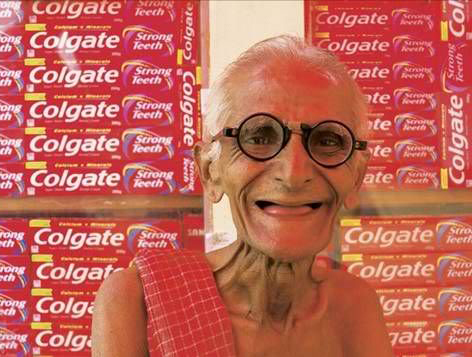 After a tooth is extracted or lost, the tooth socket starts to fill in with bone and the gum tissue heals and changes shape. This process takes a few months until the gums and bone reach a stable shape. After this time a conventional full denture is made, preferably about 8 to 12 weeks after the teeth were extracted or lost from the mouth. After a tooth is extracted or lost, the tooth socket starts to fill in with bone and the gum tissue heals and changes shape. This process takes a few months until the gums and bone reach a stable shape. After this time a conventional full denture is made, preferably about 8 to 12 weeks after the teeth were extracted or lost from the mouth.
The process starts by taking a series of impressions or molds of the oral tissues that will support the denture. A dental lab will use these impressions to make models of the patient's mouth. The dentist and laboratory technician will then slowly start building the dentures on these models and transferring them to the patient's mouth at each step to ensure proper fit, establish a proper bite, and ensure that the appearance and esthetics of the denture are desirable. The patient will generally need to be seen by the dentist once per week for about 4 to 5 weeks until the denture is complete. The patient will then need to return occasionally during the first month after the denture is delivered to have adjustments made.
An immediate denture can often be made so that the patient has something to wear the same day the teeth are removed. This type of denture is made before the teeth are extracted and is put in place the day the teeth are removed. Sometimes the back teeth are taken out first and the front teeth are left in place until the day the denture is delivered. This type of denture doesn't fit the bone and gum tissue as intimately as a conventional denture, so it requires more adjustments during the healing stage. An immediate denture is best used as a temporary appliance until a conventional denture can be made after all of the gum and bone healing is complete.
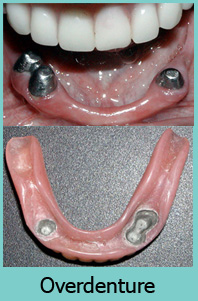
How long do dentures last?
If cared for properly, dentures should last a minimum of 5 years. Over time, the bone shrinks and causes the denture to become loose. The rate that this happens varies with each individual, but can be controlled by visiting a dentist regularly to ensure that the denture is fitting properly. An ill-fitting denture causes the bone to shrink more rapidly. To prolong the life of a denture, a dentist will often use a denture liner to refit the internal surface of the denture to the oral tissues.
Minor fractures in the teeth or acrylic base can usually be repaired by a dental lab in 1 to 2 days. Denture repair kits are even sold at most drugstores and online to fix minor cracks or replace loose teeth. Repairing the denture properly can be complicated, however, so if denture problems are noticed, it is best to contact a general dentist as soon as possible to arrange the denture repair. |